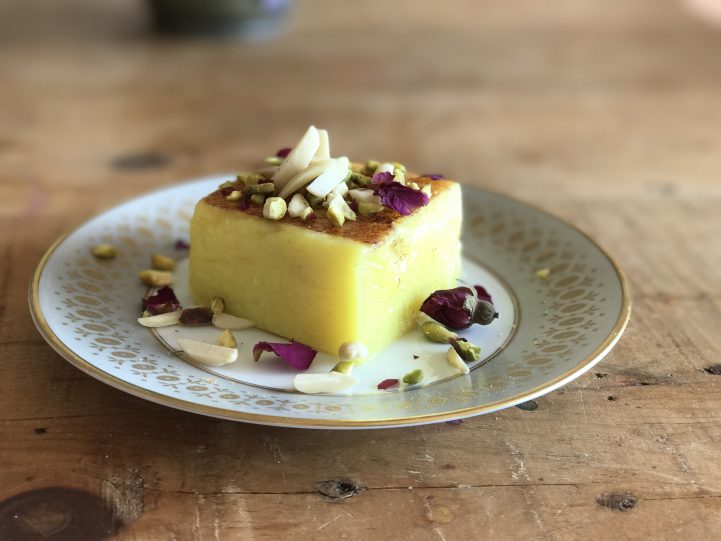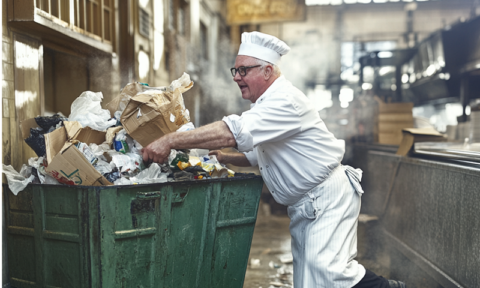Where does Saffron come from?
Saffron comes from Afghanistan, Iran, Kashmiri India, Spain, and a few other countries in the middle east. For the past 8 years Afghani saffron has been ranked #1 in the world by the European Chefs in Brussels, Belgium and the Saffron Producers Union.
What does it taste like?
Saffron has a subtle earthy and grassy flavor. A way to check the quality of saffron is to place a thread of saffron in your mouth. If you feel a sweet taste, then you are holding fake, low-quality saffron.
Are there different kinds of Saffron with different flavor profiles?
No, there is only one kind of saffron, real and artificial. It’s very hard to find pure saffron. For example, Spain produces 1,500 kilos of saffron a year, but 95,000 kilos are exported.
Are some better than others? Why?
There is organic saffron and ones that contain pesticides. Saffron can be identified by different grades, A being the highest quality, followed by grade B and C.
What color should it look like? What should it smell like?
Saffron is a vivid crimson red and has a strong earthy aroma.
What is a good way to determine the quality of the Saffron?
The best way you can test the quality of your saffron is to do a water test on a few stands. You can do that by taking a few saffron threads and place them on top of a clear glass filled with cold water. Both pure and altered saffron will release some of their colors in the water, but the difference is that pure saffron will not release a lot of colors immediately. With pure Saffron you will notice the threads slowly releasing a golden hue. It can take around 10-15 minutes for the cup of water to turn completely yellow.
On the other hand, deep red color in the water is not a good sign – you want bright yellow color. If you see a deep red color in your water, you must likely have come across some adulterated Saffron. It’s best not to use this product at all since it’s likely that it contains harmful coloring chemicals.
How should you store it?
Saffron should be stored in a glass jar/bottle and not exposed to sunlight or moisture. Kept in a dry dark place.
Does Saffron have a shelf life?
Following step #7, the shelf life for Saffron is up to 4 years from the harvest time.
Are there health benefits?
There have been many studies of the health benefits saffron provides. It is difficult to list them all, it is high in antioxidants.
What is your favorite Saffron dish?
I like it in everything, some favorites are saffron chicken, shrimp, pudding, and tea.
Our guest expert is Najla Amiri. Najla has spent the last four years producing saffron and selling it globally. The farm is run and managed by women, devoted to empowering the women in the region, providing them with an income and independence. Saffron comes from their farm in Herat, Afghanistan. The farm is focused on organic clean production, bringing the highest quality saffron to market. http://silkroadsaffron.com
Najla is involved with family-owned restaurants the Bamiyan Afghan Restaurant in the Sacramento, CA area, co-author of The Classic Afghan Cookbook as well as helping run Silk Road Saffron.
Saffron Milk Pudding
Prep in 10M Cooks in 30M
Ingredients
- 1 1/2 quarts ( 1.5 liter) whole milk
- 1 Cup ( 240 ml. ) Whole milk
- 1/2 cup ( 120 ml. ) pure corn starch
- 1 1/2 cups ( 360ml. ) sugar
- Pinch of Silk Road Saffron
- 1 teaspoon ( 5 ml.) salt free freshly ground pistachios
- 1 teaspoon (5 ml.) freshly ground cardamon
Instructions
- Pour the 1.5 quarts milk in a pot and place it over low heat. Let it come to a boil slowly without buying the bottom.
- In a bowl mix the corn starch with a cup of milk and set aside until the milk reaches the boiling point.
- It’s important to add the saffron when the milk is hot, that will release the flavor and essence of the saffron.
- Add the sugar, cardamon, pistachios while stirring.
- Once blended and corn starch and milk mixture. Keep stirring it until it reaches the boiling point and keep boiling it for a minute.
- Remove it from heat and pour it in a flat glass dish or ramekins. Let the mixture cool to room temperature.
- Once room temp, cover it with plastic wrap and place it in refrigerator to chill.
- Before serving, take out the pudding from fridge, loosen the sides with a knife, invert upside down on a plate.
Can top with your choice of rose petals, crushed pistachios or cardamon seeds.
Read Also: Charlotte Flair – Bringing the Heat – Food & Beverage Magazine








